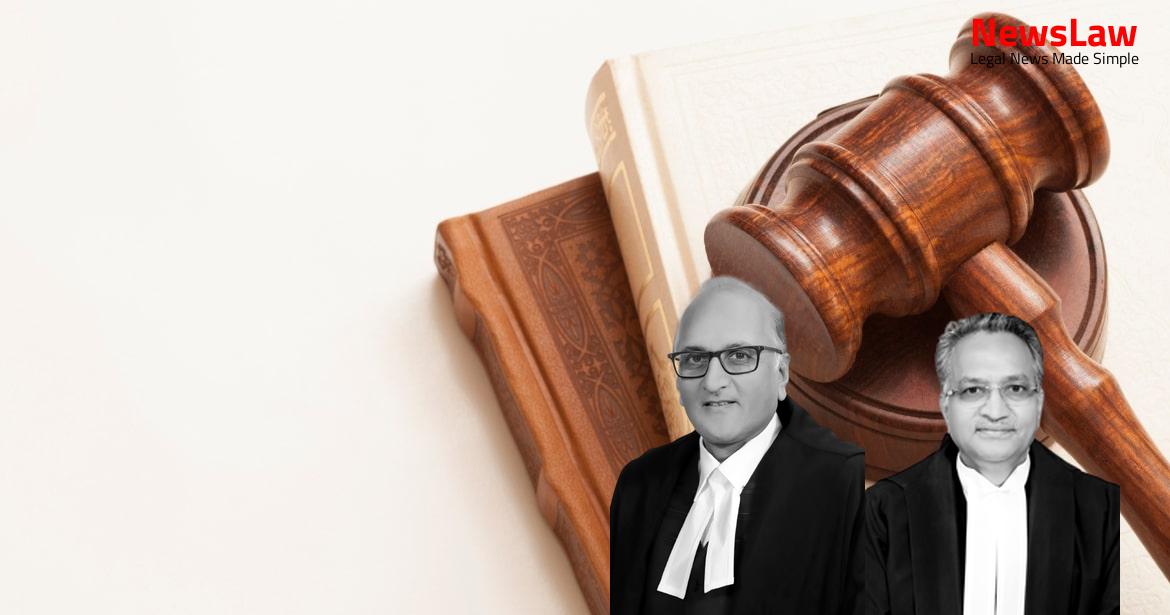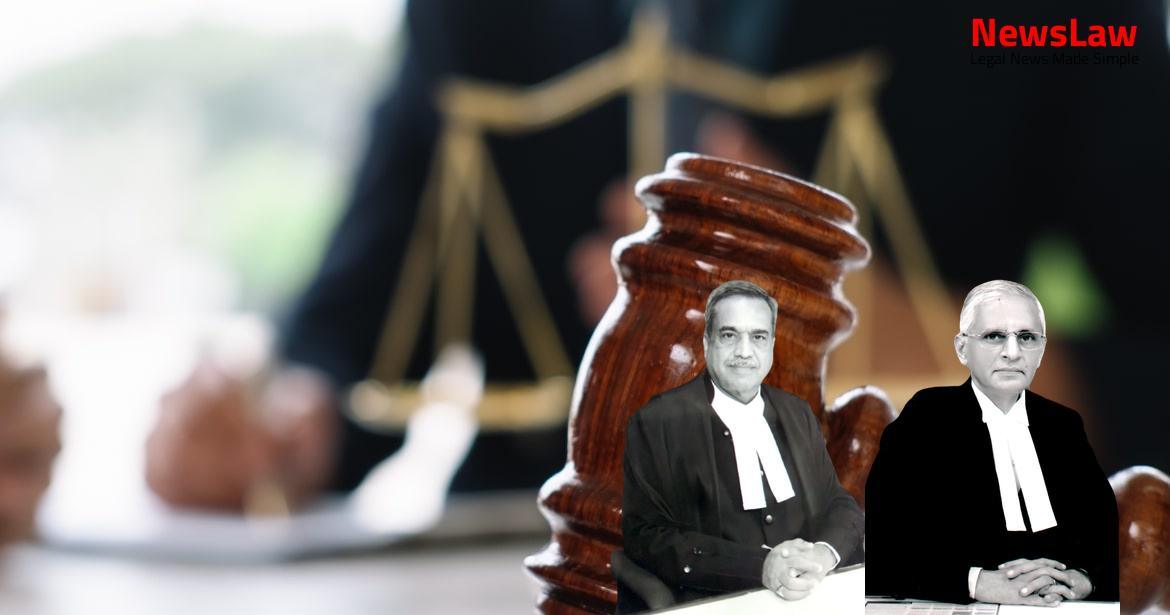In a recent legal case, the High Court’s analysis focused on the necessity of ensuring impartiality and neutrality in bail conditions, particularly in cases of sexual offenses. This underscores the importance of judicial sensitivity and adherence to legal standards in addressing such sensitive matters. The court’s considerations highlight the need for gender sensitization and fairness in determining bail conditions, setting a significant precedent for future cases.
Facts
- High Court granted bail to the applicant with certain conditions
- The conditions imposed included the accused visiting the complainant’s house with Rakhi thread and sweets, seeking her blessings, and promising protection
- The accused was also required to tender Rs. 11,000 to the complainant and Rs. 5,000 to her son for clothes and sweets
- Photographs and receipts of the payments were to be obtained and filed through counsel
- The appellants challenged the bail conditions as trivializing the trauma of the survivor and setting a negative precedent in sexual offence cases
Also Read: Legal Analysis of Claim for Loss of Profit in Delayed Contract
Issue
- The appellants argue that the discretion provided under Sections 437(3)(c) and 438(2)(iv) of the CrPC allows courts to impose conditions necessary for a particular case, as long as they align with the purpose of granting bail.
- Appellants reference cases like Kunal Kumar Tiwari v. State of Bihar and Sumit Mehta v. State (NCT of Delhi) to emphasize that courts should adhere to the observations made in those decisions when considering bail applications.
Also Read: Public Declaration Requirement in Marriage under Hindu Marriage Act
Arguments
- The appellants argue against the imposition of conditions that permit the accused to meet or have access to the survivor and her family members.
- The learned Attorney General supports the appeal and suggests sensitizing all stakeholders, especially courts, when dealing with offences against women.
- Intervenors emphasize that accused individuals are presumed innocent until proven guilty and advocate against compromising or mediating in cases of sexual offences, citing various legal precedents.
- Imposition of conditions such as compulsory community service is deemed violative of constitutional rights.
- High Courts have been noted to impose irrelevant conditions while granting bail under certain sections; this practice is condemned as harmful and necessitates immediate intervention.
- Judicial orders are expected to adhere to judicial standards and avoid remarks or conditions that could harm the survivor or the society at large.
- Courts are reminded not to assume roles beyond their mandate while deciding on bail applications by imposing unrelated conditions.
- The appellants point out numerous instances of similar problematic directions by various courts nationwide, emphasizing the impermissibility of certain conditions in POCSO and rape cases.
- Shocking remarks on the character of the prosecutrix and biased observations by judges are criticized as detrimental to the fair conduct of trials.
- Overall, the appellants seek to prohibit conditions that compromise the dignity of women or reflect bias in judgments or orders.
- The respondent argued that the Court should intervene to issue directions or guidelines on bail and anticipatory bail conditions.
- The aim is to ensure that courts only impose conditions that are legally permissible.
- The request is for the Court to provide clarity on what conditions are allowed in bail and anticipatory bail orders.
Also Read: OCI Cardholders’ Rights and Retroactive Notifications
Analysis
- Judges should avoid gender stereotyping and ensure impartiality and neutrality in their decisions.
- Bail conditions should not permit contact between the accused and the victim to avoid compromising the investigation and traumatizing the survivor.
- Gender sensitization training for judges at all levels of the judiciary is essential and should be conducted regularly by the National Judicial Academy and State Judicial Academies.
- Conditions imposed while granting bail must be relevant to the fairness and propriety of the investigation or trial, and must be exercised with utmost restraint.
- Observations from relevant cases like Kunal Kumar, Sumit Mehta should be followed to ensure fairness and sensitivity in cases of crimes against women.
- Sexual violence incidents are often trivialized, normalized, and even romanticized in popular culture like cinema.
- Public prosecutors and standing counsel should undergo mandatory training on handling sexual offenses cases.
- Training programs should be developed by the National Judicial Academy in consultation with State academies.
- Bail conditions must be free from stereotypes and patriarchal notions, and in accordance with the requirements of the CrPC.
- Courts should not suggest compromises like marriage between the prosecutrix and the accused, as it would compromise her honor.
- Gender sensitization of the bar and bench is crucial for judicial empathy towards the prosecutrix.
- Survivors of sexual assault often face victim-blaming, hindering their access to justice.
- Gender prejudices must be addressed through training judges to avoid gender-based stereotypes in sexual offense cases.
- Judges should have sensitivity towards the concerns of survivors of sexual offenses.
- High Courts should formulate modules on judicial sensitivity to sexual offenses for Judicial Services Examination.
- Bail conditions should not allow contact between the accused and the victim to protect the complainant from harassment.
- Courts should consider potential threats of harassment and make appropriate protection orders in addition to directing the accused to avoid contact with the victim.
- Complainants must be informed promptly about the accused being granted bail and provided with a copy of the bail order within two days.
- Bail conditions should not reflect stereotypical or patriarchal views about women and should follow the requirements of the Cr. PC.
- Judges should refrain from making comments that could affect a fair trial, such as victim-blaming statements about past behavior, clothing, or actions.
Decision
- The appeal is disposed of in the above terms
- There shall be no order on costs
Case Title: APARNA BHAT Vs. THE STATE OF MADHYA PRADESH (2021 INSC 192)
Case Number: Crl.A. No.-000329-000329 / 2021



